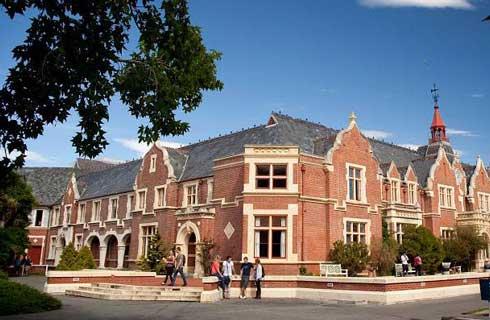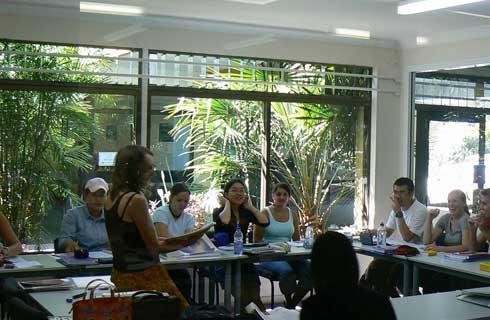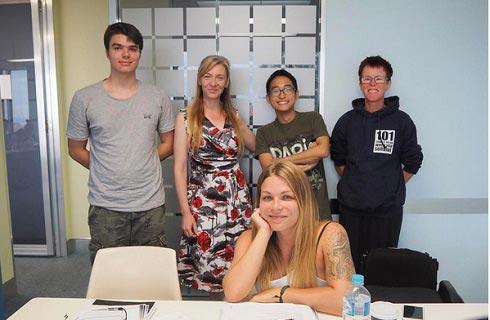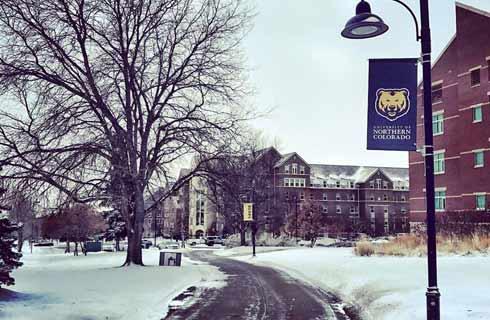生物医学工程学学士学位
Bachelor of Science in Biomedical Engineering

学历文凭
Bachelor Degree

专业院系
Department of Biomedical Engineering

开学时间

课程时长

课程学费

国际学生入学条件
IDP—雅思考试联合主办方

雅思考试总分
7.0
- 雅思总分:7
- 托福网考总分:100
- 托福笔试总分:160
- 其他语言考试:PTE -68 Duolingo -120
CRICOS代码:
申请截止日期: 请与IDP联系 以获取详细信息。
课程简介
The vision of the Department of Biomedical Engineering at Tufts University is to promote integrative research, education, and entrepreneurship at the forefront of biomedical science and engineering. The mission of the department is to advance the field of biomedical engineering through an interdisciplinary approach to education, design, and research. The department encompasses the interdisciplinary fields of tissue engineering and biomedical technologies and devices. Given that Tufts is home to one of New England's most important medical centers and an excellent School of Engineering, it's only natural that it would be a recognized leader in this fast-growing field. The biomedical engineering department is located in Tufts state-of-the-art research and learning facility, the Science and Technology Center, which also houses the Tissue Engineering Resource Center (TERC). In addition to TERC, biomedical engineering students do research alongside graduate students and faculty in the many experimentation facilities such as the biomedical engineering projects laboratory, cell and tissue culture laboratories, fermentation and bioprocessing laboratories, biomedical imaging systems, materials characterization facility, the Advanced Technology Laboratory, and several molecular biology laboratories.<br><br>The Bachelor of Science in Biomedical Engineering (BME) is a degree program that combines training in design, research, and practical methods, with a solid math, science, and engineering curriculum to provide education with breadth and depth in the field. A key aspect of biomedical engineering is its interdisciplinary nature, introductory courses in mathematics, statistics, biology, chemistry, and physics, together with foundation/concentration engineering courses build the basis for creating the synergy among these disciplines that is required in the practice of biomedical engineering. The BME degree program also includes design and research projects, biomedical engineering specific courses, culminating in a year-long senior capstone project. The mission of the Bachelor of Science degree in Biomedical Engineering is to provide students with undergraduate experiences that provide a sound basis for professional practice in biomedical engineering, life-long learning, and leadership roles in the biomedical engineering field. The program leading to the BSBME degree is accredited by the Engineering Accreditation Commission (EAC) of the Accreditation Board for Engineering and Technology (ABET).
相关申请
 预科
预科 奖学金
奖学金 实习机会
实习机会 在校学习
在校学习 跨境学习
跨境学习 校园授课-线上开始
校园授课-线上开始 在线/远程学习
在线/远程学习
开学时间&学费
学费信息仅供参考,请与IDP联系以获取详细信息
| 开学时间 | 时长 | 学费 | 地点 |
|---|
学校排名

世界排名152
数据源:
泰晤士高等教育世界大学排名
关于塔夫茨大学

塔夫茨大学(又名塔夫斯大学,Tufts University,Tufts)建于1852年,60多个专业可供选择,师资力量强大。几乎所有学生在校期间会参加实习或研究项目,学生毕业6个月后的就业率以及继续深造比率达到90%。塔夫茨大学(又名塔夫斯大学,Tufts University,Tufts)拥有卓越的学术水平,是一所全球范围内享有声誉的研究型大学。塔夫茨大学优秀的以及富有创造性的师生们成就了学校的独一无二。这里的一切总是让人意想不到:比如学术涉猎或技艺展现上,校队队员们也会活跃在剧场的舞台,艺术史的学生也会涉猎工程心理学,每个角落你都能发现学生们活跃的身影。作为一所大型研究型院校,塔夫茨大学Tufts提供大量机会,给师生以家的感觉,小班授课,师资水准不亚于及其注重学术的小型文理类院校。工程系学生或是文理院系学生不仅活跃在课堂之上,而且在宿舍抑或田径场上也可见他们才智的综合展现。跨学科思维是塔夫茨大学的准则,这样的思维方式另学生不必为难于是术业专攻/还是广泛涉猎的抉择当中。在塔夫茨大学(Tufts University)你将见怪不怪:游走于闲暇的周末时光,你可以会遇到化学工程的理科生指导经典喜剧的舞台表演演练;篮球队队员进行着营养学研究实验或是演绎着芭蕾舞蹈;抑或一位阿拉伯语和经济学双学位学生任职LGBT组织主席。但有一点很显然,塔夫茨大学的学生总是忙不停。塔夫茨大学就是这么一个令人不可思议的社区。
本校相关课程

Certificate of Achievement in Advanced Education in Esthetic and Operative Dentistry
学历文凭
Graduate Certificate
开学日期
课程费用总额


Doctorate in Occupational Therapy (Entry Level)
学历文凭
Ph.D.
开学日期
课程费用总额


Master of Laws in International Law
学历文凭
Masters Degree
开学日期
课程费用总额


Master of International Business
学历文凭
Masters Degree
开学日期
课程费用总额


Master of Science in Mathematics
学历文凭
Masters Degree
开学日期
课程费用总额


Master of Science in Economics (Course Based)
学历文凭
Masters Degree
开学日期
课程费用总额

其他相关课程

生物医学工程应用科学硕士
 达尔豪斯大学
达尔豪斯大学学历文凭
Masters Degree
开学日期
课程费用总额


生物医学工程技术文凭
 北阿尔伯塔理工学院
北阿尔伯塔理工学院学历文凭
Bachelor Degree
开学日期
课程费用总额


生物医学工程学士学位
 多伦多都会大学
多伦多都会大学学历文凭
Bachelor Degree with Honours
开学日期
课程费用总额


生物医学工程应用科学硕士
 渥太华大学
渥太华大学泰晤士高等教育世界大学排名:188
学历文凭
Masters Degree
开学日期
课程费用总额


工程科学应用科学学士-生物医学工程(荣誉学位)
 西蒙菲莎大学
西蒙菲莎大学学历文凭
Bachelor Degree with Honours
开学日期
课程费用总额


生物医学工程学硕士
 卡尔加里大学
卡尔加里大学学历文凭
Masters Degree
开学日期
课程费用总额










 美国
美国